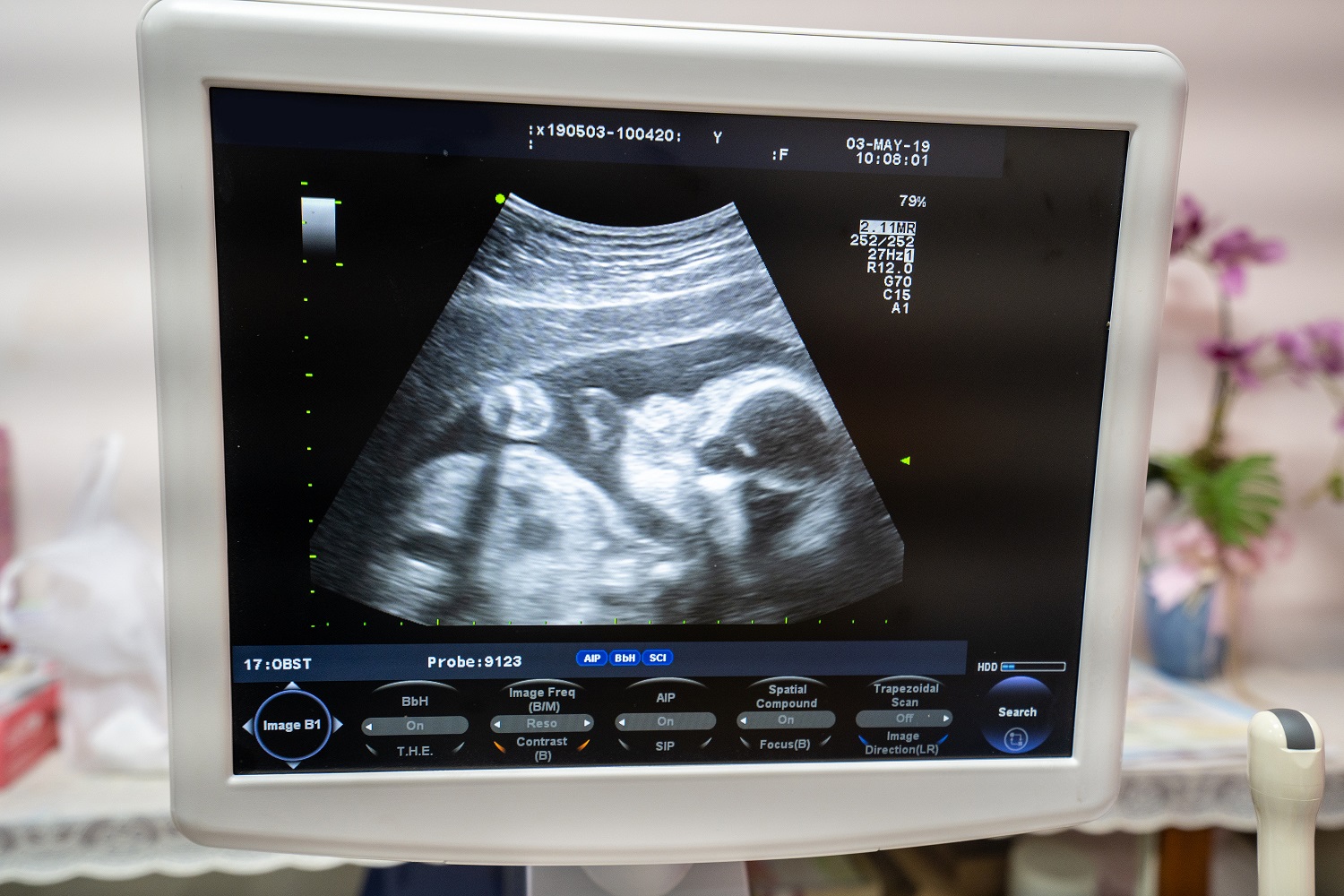COVID-19 may pose a threat to pregnant women, who are often predisposed to viral respiratory infections due to physiological changes such as diaphragm elevation, increased oxygen consumption, edema of respiratory tract mucosa, and altered cellular immunity.
This article will review the current level of knowledge regarding the impact of COVID-19 on pregnancy.
General Background
As SARS-CoV-2 continues to spread rapidly worldwide, pre-natal management, fetal safety, and the potential of vertical transmission (mother to fetus) are of significant interest and concern. However, based on available data, pregnant women do not appear more likely to contract the infection than women in the general population.
Anyone planning a pregnancy in the time of COVID-19 might consider delaying until after the pandemic; however, there is no data to recommend doing so in otherwise healthy individuals. [1] Pregnant women with congenital or acquired heart disease are at highest risk, and it is also important to consider the potential impact of pre‐existing hyperglycemia, hypertension, and preeclampsia on the outcome of COVID‐19 in pregnant women. [2]
Women with any other underlying disease or considered to have high-risk pregnancies will need to seek specialist advice early on as there may be additional prenatal or antenatal considerations in this group despite limited studies at the present time.
Expectant women should follow the same recommendations as non-pregnant persons to reduce the risk of infection: increase social distancing, practice strict hand hygiene, and wear a face mask in public. Clinicians should also be vigilant when screening for exposure or symptoms, and may wish to consider telehealth consultation before an in-person visit to improve care coordination needs by the obstetrician or other health care professionals.
Effects on the Mother
The clinical manifestations of COVID-19 in pregnant women are similar to those in non-pregnant individuals. The main clinical symptoms are fever, myalgia, dry cough, shortness of breath, and fatigue. Some of these symptoms overlap with those of normal pregnancy and so high clinical suspicion is necessary even in afebrile women. The peripheral white blood cell count is normal or decreased in early stages, and the lymphocyte count may be reduced. Some pregnant women may have mild thrombocytopenia with elevated levels of liver enzymes and creatine phosphokinase. Furthermore, C-reactive protein (CRP) may be increased.
Initial data showed pregnant women who developed COVID-19 pneumonia had approximately the same rate of intensive care unit (ICU) admission as non-pregnant women. More recent data published in the U.S. Centers for Disease Control and Prevention’s June 26, 2020 Mortality and Morbidity Weekly Report indicates that pregnant women with COVID-19 experience higher rates of hospitalization and ICU admission, but equal mortality compared to non-pregnant women. [3] Pneumonia, identified by presence of bilateral lung infiltrates and elevated serum CRP at the time of admission, has been seen in more than half the cases with a severe disease course. [4]
Management of COVID-19 during Pregnancy
Maintaining fluid and electrolyte balance is imperative for general management. Treating any symptoms is advisable and monitoring of vital signs and oxygen saturation level is crucial in order to detect any impending maternal hypoxia. Evaluation of complete blood count, renal and liver function testing, and coagulation profile is also important. It is also advisable to monitor fetal heart rate especially if the gestational age is beyond the limit of viability, i.e., 23–28 weeks.
Clinical trials are studying the use of antiviral medicines in pregnant women with severe symptoms. [5] Chest imaging may well be necessary during the evaluation and management of a pregnant female who develops severe respiratory disease. Chest CT is a highly sensitive test for diagnosis of COVID-19 in pregnant women with an existing infection, [5] and given the potential harms with exposure to radiation, which include fetal growth retardation, microcephaly, and intellectual disability, the minimum possible dose for radiography must be utilized and imaging must be carried out in accordance with strict protocols and informed consent. [6]
Severe and critical disease is associated with poor maternal and fetal outcomes, so while antiviral treatment is usually given, it is individualized and based on weighing the risks versus the benefits of treatment to the mother and her baby. Lopinavir-ritonavir has been used in human immunodeficiency virus (HIV) treatment in pregnancy and has also been used to treat pregnant COVID-19 patients. It crosses the placenta and may increase the risk for preterm delivery, but otherwise seems to be relatively safe with no known teratogenic effects. [7, 8] The World Health Organization (WHO) advises caution using investigational drugs in pregnant women outside of the clinical trial setting. Antibiotics are indicated only if there is evidence of secondary bacterial infection.
Effects on Pregnancy Outcomes
Data on first-trimester infections are limited, but the rate of spontaneous pregnancy loss does not appear to be increased, and COVID-19 infection is currently not an indication for the medical termination of pregnancy. In comparison with other types of coronavirus infections such as SARS and MERS, the maternal mortality risk appears to be lower in COVID-19. [8] The disease is related to increased rates of preterm birth and caesarean delivery, [9] and these complications are likely related to more severe maternal illness.
In a case series from Wuhan, China, 92% (109/118) of pregnant women had mild disease and 8% (9/118) had severe disease (hypoxemia) – six of the nine women developed severe disease after delivery. [10] In a Spanish cohort, 11% (9/82) of pregnant women experienced severe adverse maternal outcomes, out of which four had severe and five had mild COVID-19 symptoms. Overall, COVID-19 patients with vaginal deliveries had excellent outcomes even with mild symptoms at presentation, whereas women undergoing caesarean delivery, some for obstetric indications and some as a result of the infection, had a higher likelihood of adverse outcomes. [11]
In terms of the timing of delivery, prompt delivery is not indicated in infected women with non-severe disease and could even be considered after a negative test result in order to reduce potential transmission to the baby after birth. However, delivery as early as 32-34 weeks of gestation may need to be considered in severely ill women with COVID-19.
To date, SARS-CoV-2 has not been detected in vaginal secretions or amniotic fluid, but data are limited. Thus, usual management guidelines apply for rupture of membranes and fetal heart rate monitoring.
Effects on the Infant
Based on limited data, no compelling evidence suggests intrauterine vertical transmission of COVID-19 from infected women to their babies. [12] Postnatal contamination cannot be conclusively ruled out.
In early studies from China, it was noted that some newborns were pre-term and low birth weight, when born to COVID-19-positive mothers, but evidence as to whether these were related to the disease is unclear. [1] Most newborns have tested negative for SARS-CoV-2 after birth; [13] however, symptomatic newborns born to COVID-19-positive mothers have tested positive for SARS-CoV-2 after a few days of life, so it is not clear at which stage – pre-, peri- or postnatally – transmission might have occurred. [14] Good neonatal outcomes for infected mothers in the last trimester in this small case series from Wuhan, China, have been attributed to intensive and active case management. [15]
The virus has been found in some samples of breast milk, but the risk of SARS-CoV-2 transmission from ingestion is unclear, and breastfeeding is still advised because of its known benefits. Transmission is more likely to occur as a result of droplet transmission from close contact with an infected mother such that the recommendation in this case would be for a healthy caregiver to feed the infant expressed breast milk.
Maternal Mental Health
Pregnant women are not immune to the mental health impacts of the pandemic and may be more at risk given the many compounding factors, including the fear of becoming infected, transmitting the infection to her infant if infected, social isolation, financial difficulties, potential reduction in household help, insecurity, and the inability to access support systems. Particular attention should be paid to these aspects of maternal care. [16]
Summary
As the COVID-19 pandemic continues to take its toll around the world and new research emerges on a regular basis, proactive clinical management and dedicated support must be provided to ensure healthy outcomes for pregnant women and their infants.



